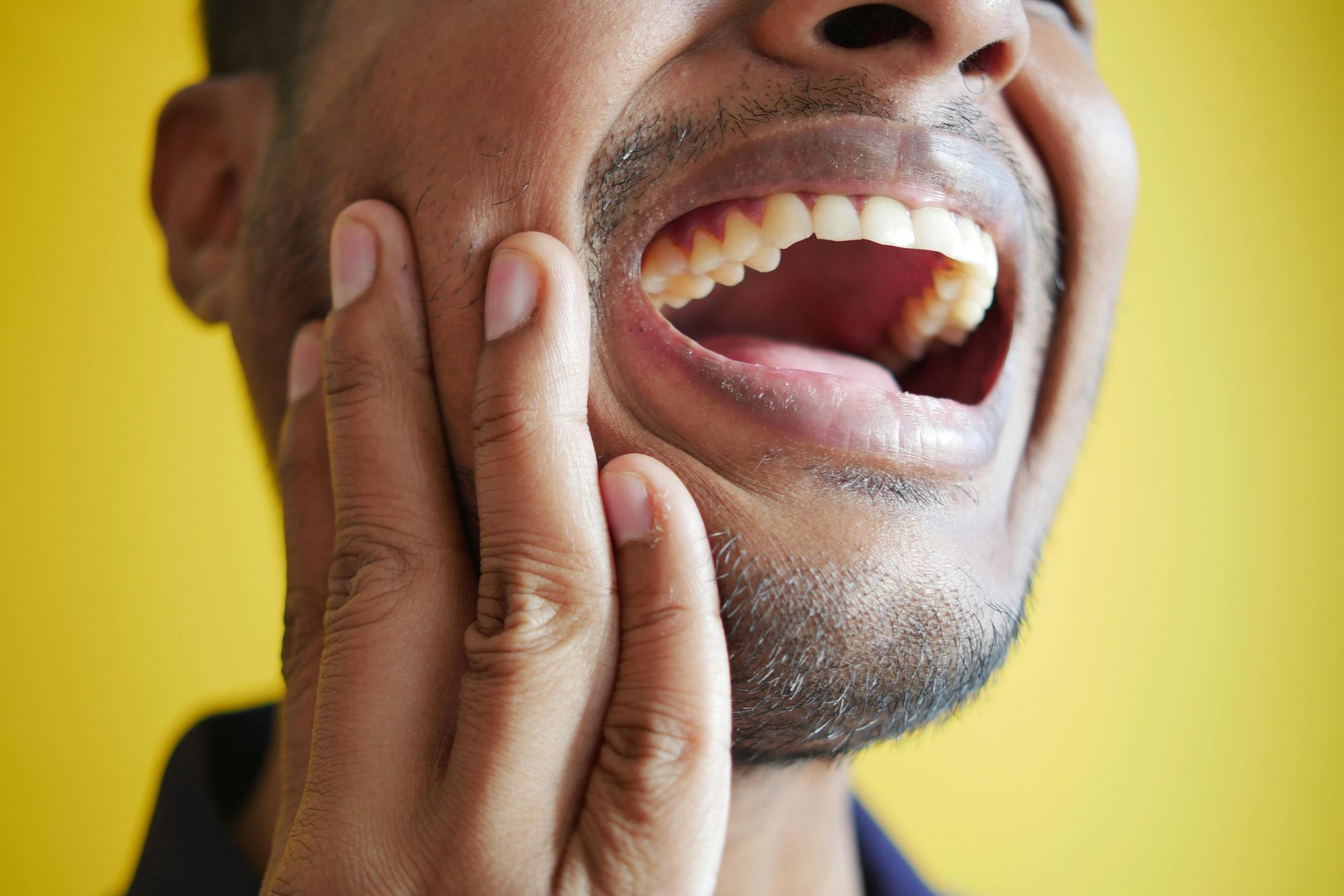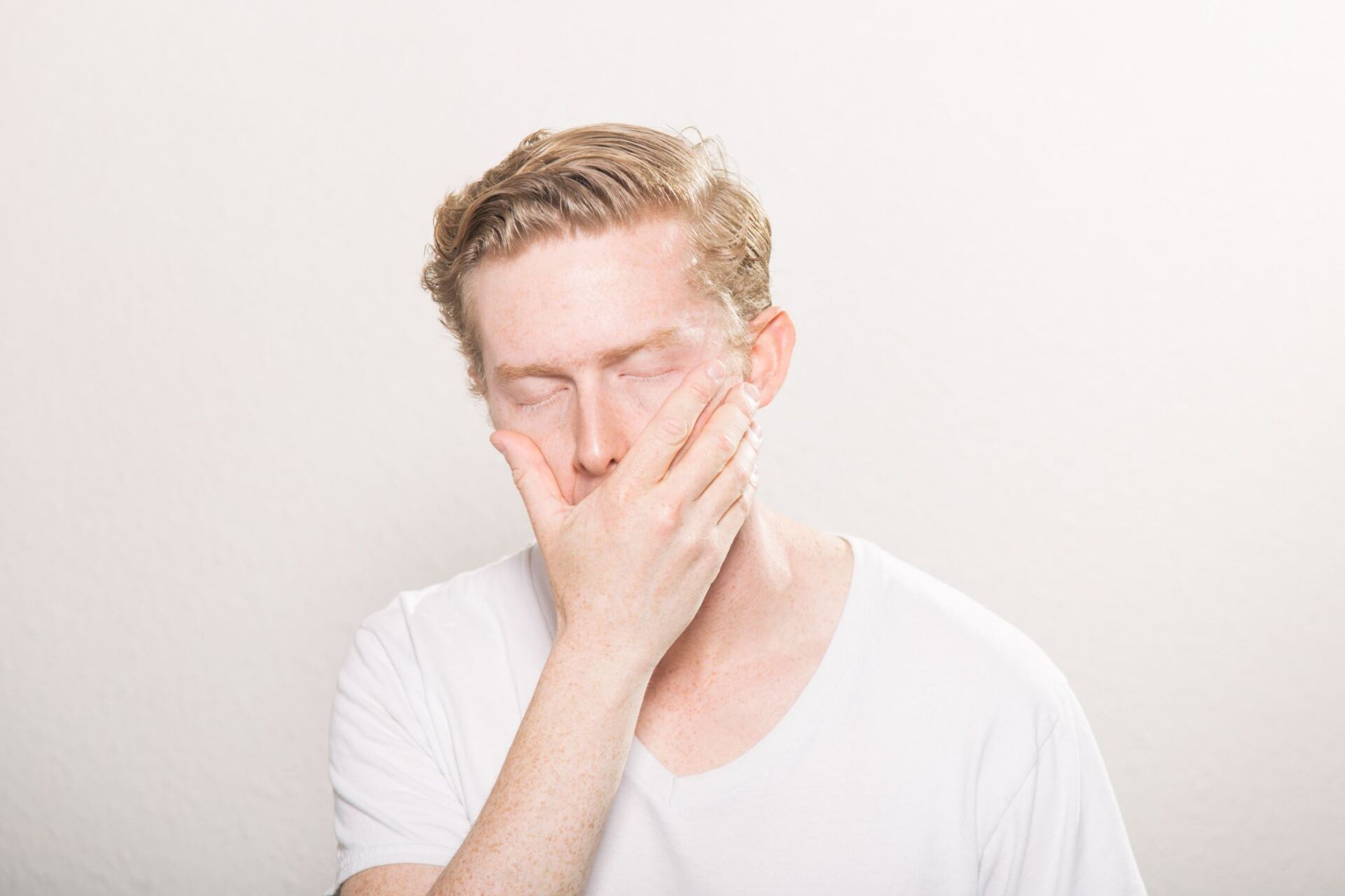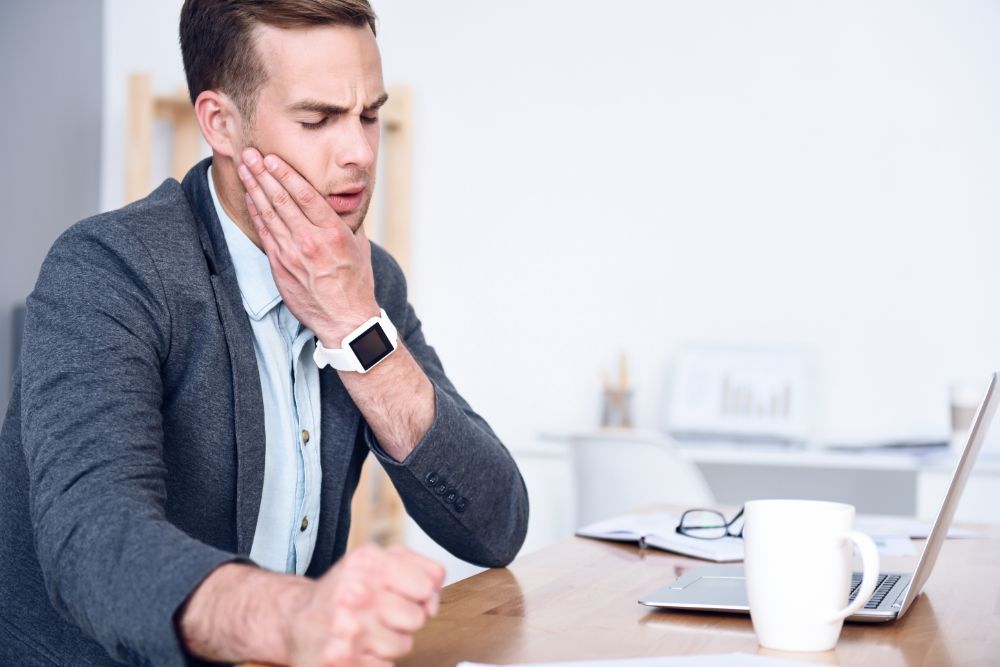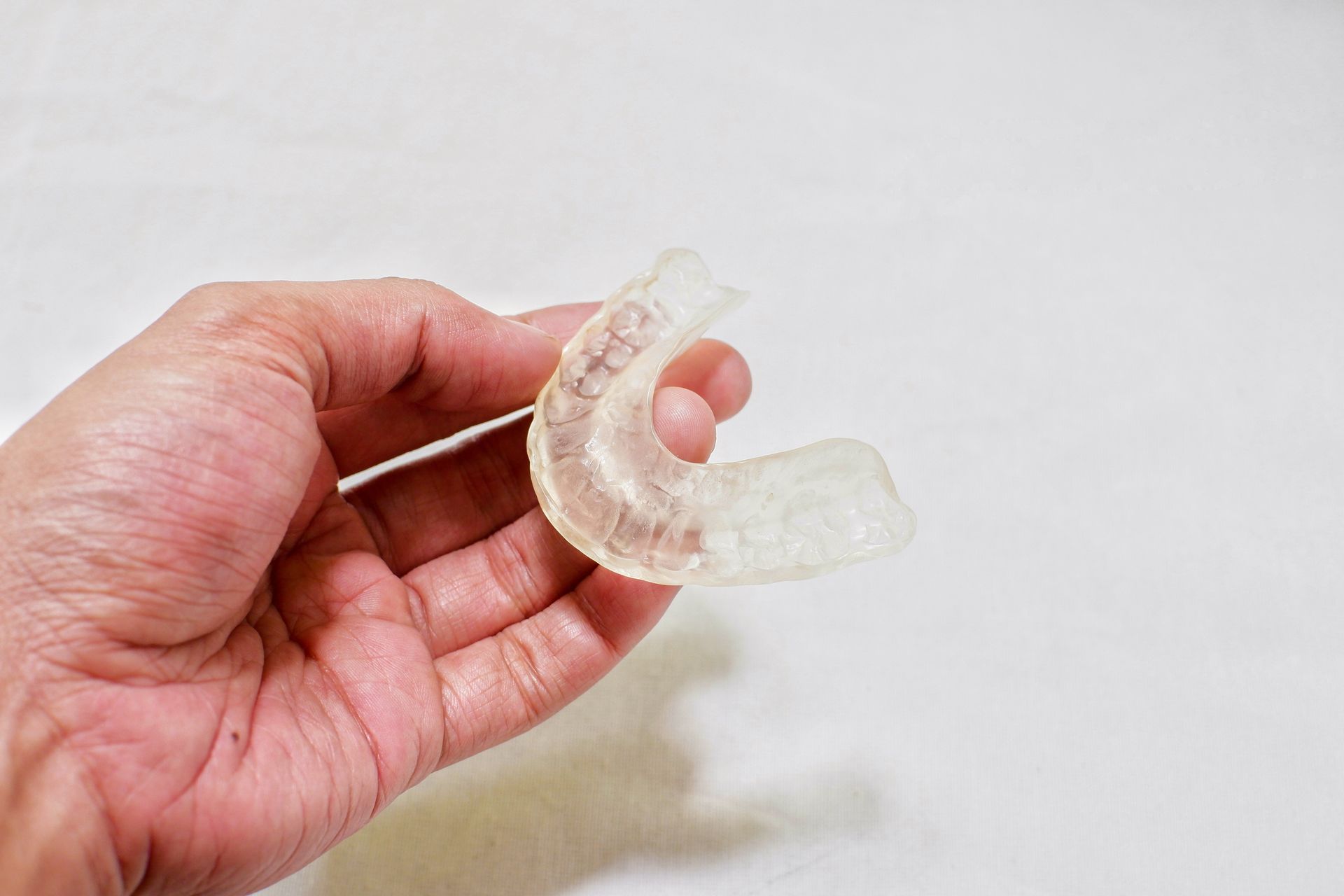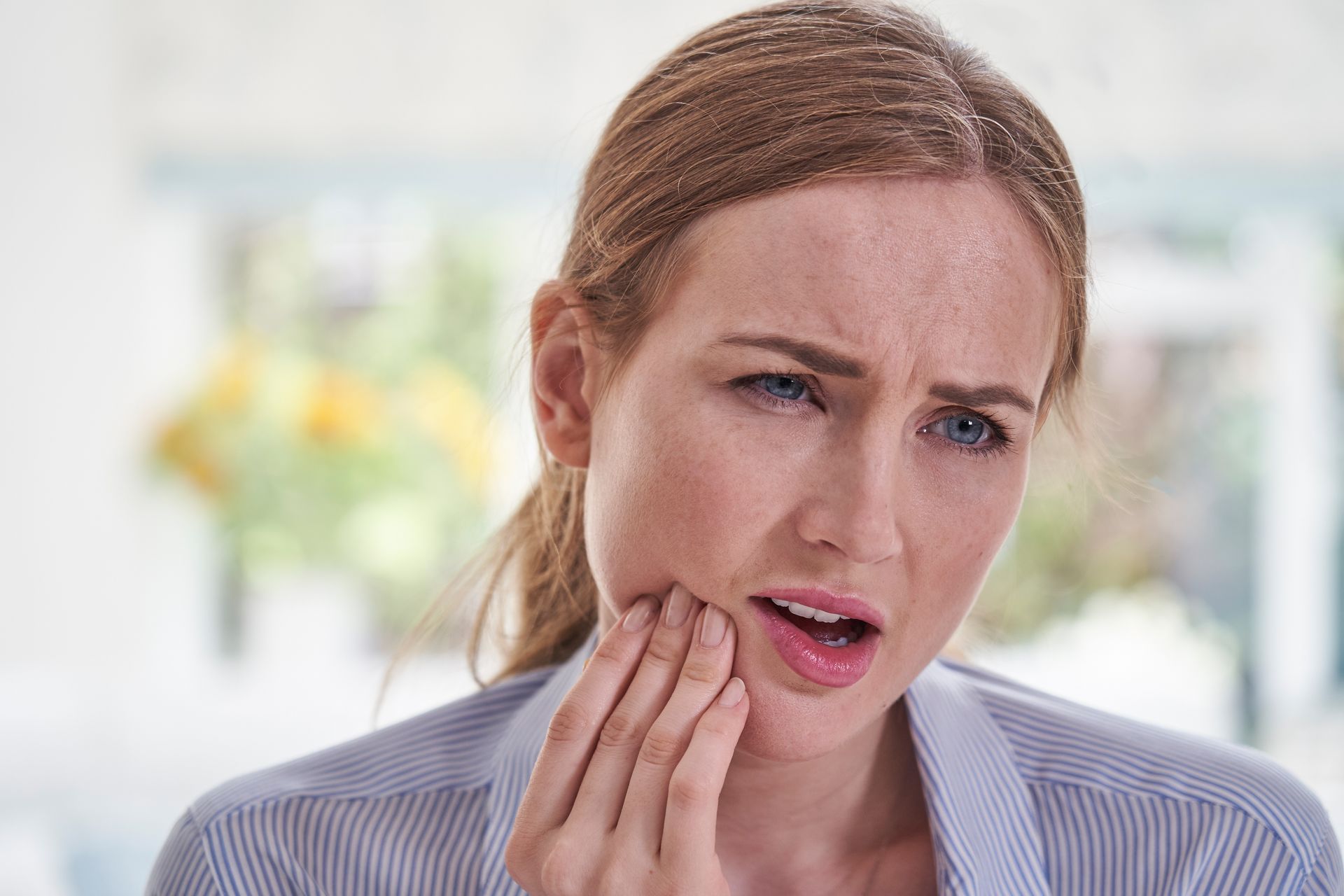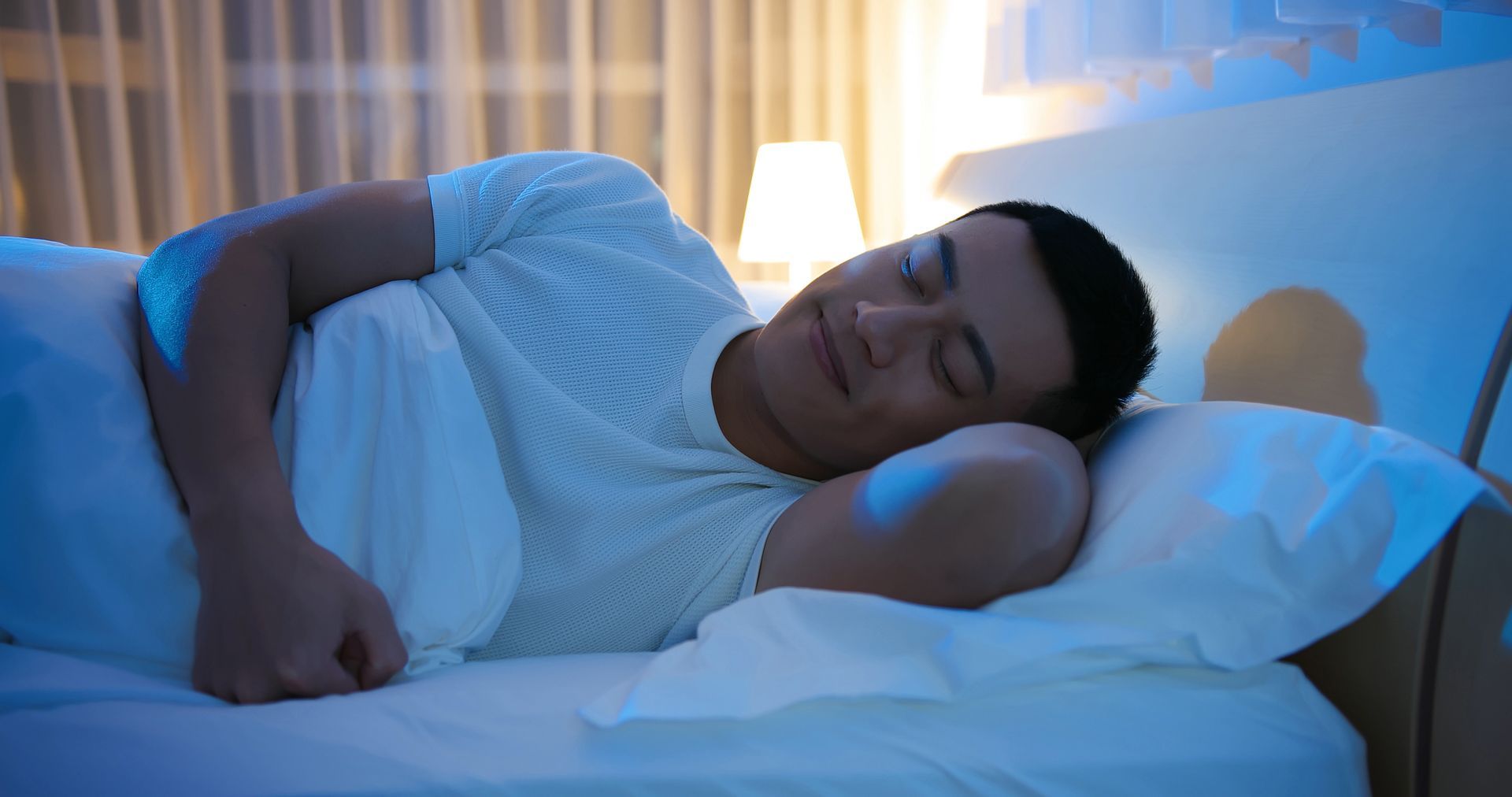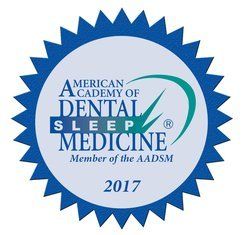What Are TMJ Appliances and Do They Help with TMD?
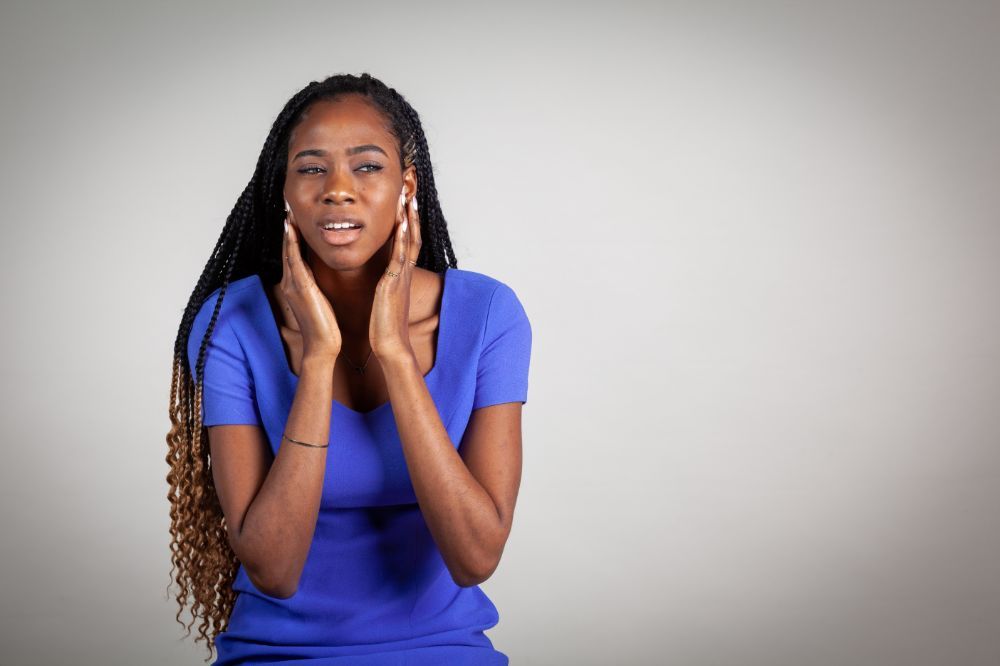
Do you have pain along your jaw, ears, joint popping or clicking, limited range of motion, or headaches but don't know what’s causing it? It may be due to temporomandibular joint disorder (TMD), a relatively common problem people encounter regardless of their medical history. Fortunately, as technology has evolved, so have TMD treatment options. Keep reading to learn more about TMD and how custom-made TMJ appliances can help relieve painful TMD symptoms by treating the cause.
About TMJ Disorders
The temporomandibular joints (TMJs) are the joints that connect the jaw to the skull just beneath the ears on each side of the face. One of the hardest working and most complex joints in the body, TMJs move side to side, backward and forward, and up and down, like a sliding hinge. When a TMJ suffers trauma, is overused, or is afflicted with a condition such as arthritis, it can become painful, inflamed, stiff, and even swollen. The pain, inflammation, and tightness can spread throughout the jaw area to the ears, face, and even up the sides of the cheeks to the upper head or down your neck.
TMD is a common yet often misunderstood condition. The prevalence of TMJ pain in the general population is around 10%, and women are twice as likely as males to suffer from TMD. Although TMD pain is the
third most prevalent chronic pain condition
worldwide after tension headaches and back pain, many people suffering from TMD are undiagnosed because it mimics other conditions.
TMD causes and symptoms include:
- Jaw clicking or popping sounds (or jaw pressure). Problems with the temporomandibular joint, including the displacement of the joint’s articular disc, may cause sounds such as these, which may or may not be associated with TMJ pain.
- Chewing pain. Swelling and inflammation in the TMJ are often linked to painful chewing.
- Random tooth chips or cracks. Teeth grinding (bruxism) or clenching can cause TMD due to TMJ overuse and result in chips and cracks and worn-down teeth.
- Locking of the jaw. Jaw lock—difficulty opening or closing the mouth—may occur due to misalignment or damage to the cartilage, tendons, or ligaments that move the jaw.
- Migraines and headaches. TMD-related pain can spread to the top of the head, causing headaches and migraines.
- Earaches (pain under the ears). The TMJs are so close to the ears that pain originating in the TMJs may easily spread to and around the ear.
- Dizziness. Hearing and balance can be affected when TMJ inflammation travels into the middle or inner ear.
- Teeth clenching and grinding. Habitual grinding and clenching, which can be related to stress, may result in TMJ overuse, causing TMD.
- Toothaches. Bruxism, a bad bite, and problems with mastication muscles may create tooth pain.
- Tenderness in the jaw. Inflamed, swollen TMJs can affect surrounding muscles and tissues, causing general tenderness and discomfort in the area.
- Facial pain. It is not uncommon for TMJ Inflammation and swelling to spread to other areas of the orofacial region, including the face.
- Neck and shoulder pain. Overworked jaw muscles can not only result in TMD; the pain may spread from the jaw down the neck and into the shoulders.
What are TMJ Appliances
TMD treatments include TMJ appliances. This noninvasive, drug-free treatment is designed to relieve the pain, stiffness, and discomfort of TMD. TMJ appliances are worn in the mouth, fitting over the upper or lower teeth, similar to a mouthguard. The amount of time patients need to wear a TMJ appliance depends on several factors, including the TMD cause and severity. True TMJ issues are usually chronic, meaning they don’t go away on their own. TMJ appliance treatment, also known as splint therapy, helps alleviate the painful symptoms of TMD over a period of a few months in most cases and can provide joint stability after that. The key to getting the most effective, long-term relief from TMD is to be prescribed the right TMJ appliance, combined with a comprehensive treatment plan provided by a doctor experienced in treating TMD.
Types of TMJ Appliances
There are several types of TMJ appliances. Proper diagnosis is essential to address the cause successfully and achieve long-term treatment results. If a TMJ appliance is not fitted correctly or is the wrong type of appliance for your diagnosis, it can create muscle strains, teeth sensitivities, and other problems that can exacerbate TMD versus relieve it.
TMJ appliances called stabilization splints are considered the most effective, conservative, research-based treatment for achieving long-term results. These appliances, also known as bite plates or bite guards, are prescribed, designed, fitted, and adjusted by TMJ experts like Dr. Katherine Phillips, a board-certified orofacial pain specialist.
Splints made by a TMJ specialist come in many shapes and sizes and are generally hard acrylic. They prevent contact between the teeth and reduce jaw pressure to break the cycle of pain. Splints are typically worn 24 hours a day in the initial treatment phase, with many patients moving to just nighttime use once the joint is stable enough.
Although it may be tempting to purchase an over-the-counter night guard online or at a drugstore, these devices may actually worsen TMJ symptoms because they actually encourage more clenching. Due to their “chewy” nature, soft sports guards may promote more clenching and create more joint loading force also.
Nightguards created by dentists without extensive TMD training and expertise are often made of hard acrylic. Although they represent the right idea for treatment, most nightguards are designed to primarily help with teeth grinding, not the clenching that causes most TMJ issues. Unless the TMD is carefully and expertly managed, they will not reduce the loading force on the TMJ. This means long-term results are unlikely.
Why You Should Consider TMJ Appliances
TMJ appliances are a drug-free, noninvasive solution for TMD. They are designed to:
- Reduce pressure on jaw joints. A proper TMJ appliance helps reduce loading forces to the jaw joint to reduce jaw stress and strain.
- Reduce teeth grinding. Splints are designed to keep teeth separated, which can reduce clenching and grinding.
- Typically treat most TMD symptoms in a short period of time. Initial-stage splint therapy typically takes about three months.
- Provide long-term stability for the TMJ. Once the joint is stable, a TMJ splint, usually worn nightly at this point, helps prevent a recurrence of symptoms.
- Reduce pain and enable better, more restful sleep. By reducing stress on the TMJs and associated muscles and tissues, inflammation and swelling can subside along with the associated pain.
- Avoid future serious complications. Left untreated or undertreated, TMD will typically worsen over time, causing further joint damage and worsening symptoms.
What to Expect During Treatment
TMJ appliance/splint therapy is not a scary process. Splint therapy can be painless and easy to comply with when the appliance is created, fitted, and adjusted by a dentist who is a highly experienced TMJ specialist. Expect a thorough evaluation that includes state-of-the-art digital imaging, impression, and examination procedures. Once you are fitted with a custom-made TMJ appliance, you will visit your TMJ specialist for regular check-up visits. Your progression will be assessed, and if necessary, treatment modifications will be made to help ensure TMD pain is alleviated. TMD treatment with a skilled provider is very dynamic and hands-on.
Next Steps
If you suffer from TMD or suspect you may have TMD, schedule an appointment with Dr. Katherin Phillips. She is double board-certified in orofacial pain and dental sleep medicine and has spent most of her career in these two fields instead of general dentistry. With extensive experience and education, she uses mainstream, evidence-based medical science to identify the contributing factors causing your pain and will offer a TMJ treatment plan that best fits your needs.
Contact Us Today For A Consultation!
Contact Us
Thank you for reaching out to us at REstore TMJ and Sleep Therapy. We look forward to helping you. We will follow up within 24 hours for contact requests received during normal office hours Monday – Thursday. If you have submitted a request later in the day on Thursday – Sunday, we will follow up on Monday. If you would like to talk to us before we can get to your request, please feel free to give us a call at 281-296-6797 Monday – Thursday 8am – 4:30pm. Have a great day!
Regards,
Dr. Katherine Phillips and Staff
Please try again later.
REstore TMJ & Sleep Therapy P.A.
1001 Medical Plaza Drive,
Suite 200 | The Woodlands, TX 77380
281-296-6797
Dr. Phillips serves TMJ & Sleep patients in: The Woodlands TX | Spring TX | Conroe TX Tomball TX | Cypress, TX | Houston, TX | Kingwood TX | Humble, TX | Katy TX
© 2023 by REstore TMJ & Sleep Therapy | Terms Of Service & Privacy Policy | XML Sitemap
-2700x842-1920w.png)






